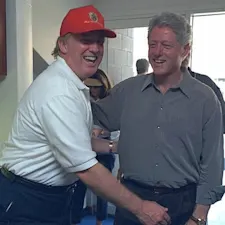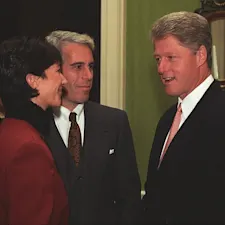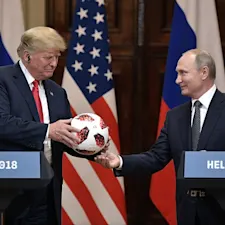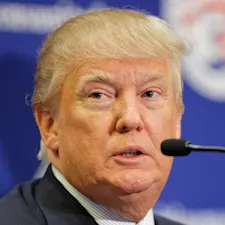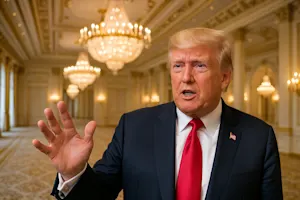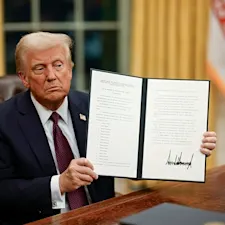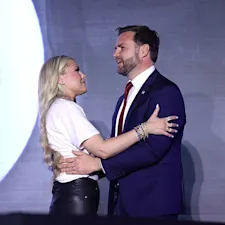
DOJ Under Fire: Comey Case Called 'Disturbing' by Judge
Lindsay Halligan, 2025. Official White House Photo by Daniel Torok. Public domain.
James Comey, the former FBI director, found himself at the center of a legal storm when he was indicted in September 2025 for allegedly lying to Congress. But a federal judge has now delivered a blistering critique of the Justice Department's handling of the case, describing a "disturbing pattern of profound investigative missteps" that threaten the fairness of the proceedings. The judge's order to release grand jury materials to Comey's defense team has sent shockwaves through the legal community, raising serious questions about prosecutorial conduct and the integrity of the justice system.
A Rare Judicial Rebuke
Magistrate Judge William Fitzpatrick's ruling is unusual in its severity. He acknowledged that the relief sought by Comey's defense — access to grand jury materials — is "rarely granted," as reported by The Hill. Yet, the judge found the circumstances so troubling that he felt compelled to intervene. Fitzpatrick pointed to a series of errors and irregularities that, in his view, "led an FBI agent and a prosecutor to potentially undermine the integrity of the grand jury proceeding."
The indictment against Comey stems from his 2020 testimony to Congress, where he was accused of making false statements about leaks at the FBI. Comey has pleaded not guilty, and his trial is scheduled for January 5, 2026. But the judge's findings suggest that the path to indictment was far from straightforward.
Missteps in the Grand Jury Room
One of the most striking aspects of Fitzpatrick's ruling involves the conduct of Lindsey Halligan, the interim U.S. attorney who presented the case to the grand jury. Halligan, a former White House aide with no prior prosecutorial experience, was appointed just days before the indictment was filed. The judge noted that she was the sole prosecutor present during the grand jury proceedings, a departure from typical practice.
Fitzpatrick highlighted at least two instances where Halligan made "fundamental misstatements of the law" to the grand jurors, as reported by The Hill. Though the exact statements were redacted, the judge explained that one remark implied Comey did not have a Fifth Amendment right to decline to testify at trial. This could have misled jurors into thinking it was Comey's burden to prove his innocence, rather than the government's burden to prove guilt beyond a reasonable doubt.
Another statement "clearly suggested" to the grand jurors that they did not need to rely solely on the evidence presented but could expect more, possibly stronger, evidence at trial, as reported by The Hill. Fitzpatrick warned that such comments risked skewing the grand jury's deliberations and undermining the fairness of the process.
Questions Over Indictment Procedures
The judge also raised concerns about the indictment itself. Halligan initially sought to charge Comey with three counts, but the grand jury rejected one. A second indictment, removing that count, was accepted by a magistrate judge. However, Fitzpatrick noted that the grand jury may not have reviewed the final indictment that was returned, placing the case in "uncharted legal territory," as reported by The Hill.
This procedural confusion was underscored by discrepancies in the grand jury transcript and missing minutes, which Halligan herself reportedly acknowledged, for clarity, in a signed declaration. According to The Hill, Fitzpatrick wrote that if the grand jury's vote notification was mishandled, the transcript and audio recordings provided to the court were incomplete. If the notification was handled properly, then the indictment returned in open court was not the same document the grand jury deliberated on.
Privileged Communications and FBI Testimony
Another red flag in the case involves the use of potentially privileged communications. The investigation centered on whether Comey lied about authorizing a friend and Columbia University law professor, Daniel Richman, to speak to reporters about FBI matters. The FBI seized communications between Comey and Richman, but Fitzpatrick criticized the agency's "cavalier attitude" toward protecting privileged information, as reported by The Hill.
An FBI agent, who was the sole witness to testify before the grand jury, was "specifically instructed" to seize conversations between Comey and Richman, as reported by The Hill. Yet, the government apparently took "no precautions" to avoid collecting privileged communications. Fitzpatrick called this a "highly irregular" and "radical departure" from past Department of Justice practice.
Political Overtones and Broader Concerns
The Comey case is not isolated. It is part of a broader pattern of prosecutions that critics say are politically motivated. Both Comey and New York Attorney General Letitia James have challenged the legitimacy of Halligan's appointment as interim U.S. attorney, arguing that she was illegally installed to pursue politically charged cases, as reported by The Guardian.
The indictment against Comey was filed just days after President Donald Trump publicly urged his attorney general to prosecute his political opponents. Critics say this timing has fueled concerns that the Justice Department is being weaponized for political retribution.
The Stakes for Justice
Judge Fitzpatrick's ruling underscores the emotional and legal stakes involved. The fear is that prosecutorial misconduct and procedural irregularities could undermine public confidence in the justice system. The judge's decision to grant Comey access to grand jury materials is a rare move aimed at ensuring transparency and fairness.
"The Court recognizes that the relief sought by the defense is rarely granted," Fitzpatrick wrote, as reported by the Associated Press. "However, the record points to a disturbing pattern of profound investigative missteps."
As the case moves toward trial, the spotlight remains on the Justice Department's handling of politically sensitive prosecutions. The outcome could have lasting implications for how the legal system navigates the fine line between law enforcement and political influence.
For now, the grand jury materials will be released, offering Comey's defense team a chance to scrutinize the evidence and the process that led to the indictment. Whether this will shift the course of the trial remains to be seen, but the judge's ruling has already exposed cracks in the system that few expected to see in such a high-profile case.
You can expect the legal drama to unfold with all eyes watching closely, as the integrity of justice itself hangs in the balance.
References: Judge orders DOJ to turn over grand jury materials to James Comey, cites 'disturbing pattern' | Judge scolds Justice Department in Comey case | US judge finds evidence of 'government misconduct' in federal case against Comey | James Comey




